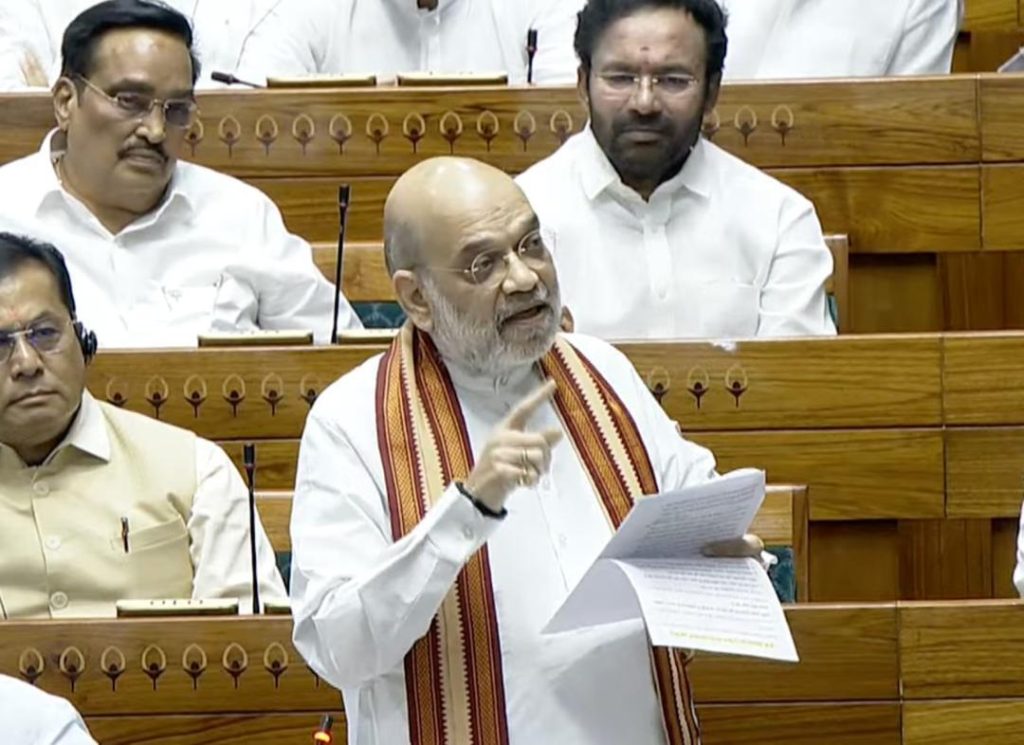
What did J&K Locals Arrested for Housing Pahalgam Terrorists Tell Government?
On April 21, a terrorist attack took place in Pahalgam, Jammu and Kashmir, where a group of terrorists opened fire on a group of tourists and locals, leaving several injured. The attack was widely condemned, and the government launched an investigation to identify and apprehend the perpetrators. In a recent development, Union Home Minister Amit Shah informed the Lok Sabha that two local residents of Jammu and Kashmir were arrested for housing the terrorists involved in the Pahalgam attack. The minister’s statement has raised many questions, and in this blog post, we will delve into the details of what the arrested locals told the government.
According to Amit Shah, the two arrested locals revealed that the terrorists reached their hut, which is located 2km from the Baisaran Valley, on April 21. The terrorists were armed with AK-47 and M9 Carbine, and two of them were wearing black outfits. The minister further stated that the terrorists had eaten, drunk tea, and taken some food, salt, chillies, and masalas while leaving the hut.
This information has sparked a lot of debate and speculation about the nature of the terrorists and their activities in the region. While the government has not released any further details about the investigation, the statement by Amit Shah has given rise to several questions. What was the purpose of the terrorists’ visit to the hut? Why did they choose that particular location? What was the nature of their relationship with the arrested locals?
To understand the significance of these questions, it is essential to have a deeper look at the context in which the Pahalgam attack took place. Jammu and Kashmir has been facing a prolonged period of terrorism, and the region has seen several attacks on civilians and security personnel in recent years. The attack in Pahalgam was particularly disturbing because it targeted a group of tourists, including women and children, who were on a trip to the scenic valley.
The attack highlights the vulnerability of tourist destinations in Jammu and Kashmir, which are often seen as safe havens for tourists. The government’s failure to provide adequate security to these areas has raised concerns about the effectiveness of its counter-terrorism strategies.
The arrested locals’ statement also raises questions about the role of local residents in supporting terrorist activities. While it is not uncommon for local residents to be unwittingly drawn into the conflict, there have been instances where they have actively supported terrorist groups. The government’s decision to arrest the two locals has been seen as a necessary step to curb such support and prevent future attacks.
However, the arrest of the locals has also sparked concerns about the potential human rights violations. The government’s reliance on intelligence agencies and informants to gather information about terrorist activities has often led to allegations of extrajudicial killings, torture, and forced confessions. The arrested locals’ statement, which was made under duress, may not be a reliable account of the events.
Moreover, the government’s decision to make the arrested locals’ statement public has raised questions about the transparency of the investigation. The statement, which was made by Amit Shah in the Lok Sabha, has not been corroborated by any other evidence, and the government has not released any further details about the investigation.
The Pahalgam attack and the subsequent arrest of the locals have once again highlighted the complexity of the terrorism issue in Jammu and Kashmir. The attack has shown that the terrorists are increasingly targeting vulnerable areas, including tourist destinations, and that the government’s security measures are inadequate to prevent such attacks.
The arrest of the locals has also raised questions about the role of local residents in supporting terrorist activities and the potential human rights violations that may occur during the investigation. The government’s decision to make the arrested locals’ statement public has raised concerns about the transparency of the investigation and the reliability of the information provided.
In conclusion, the Pahalgam attack and the arrest of the locals have raised several questions about the nature of terrorism in Jammu and Kashmir. While the government’s decision to arrest the locals is a necessary step to curb support for terrorist activities, it is essential to ensure that the investigation is transparent and that the arrested locals are not subjected to human rights violations.
Sources:






